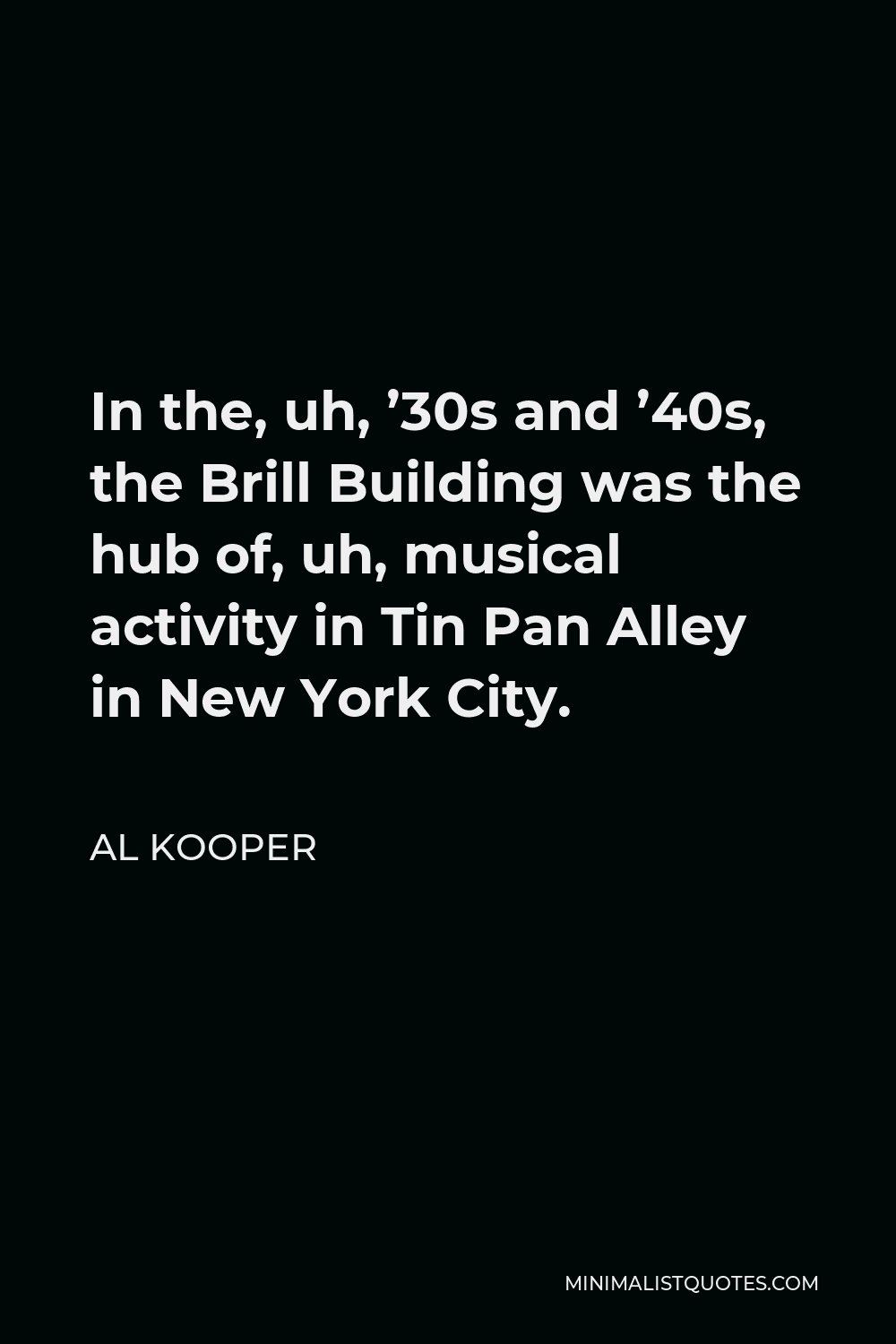You couldn’t help being influenced by Dylan.
AL KOOPERIn the, uh, ’30s and ’40s, the Brill Building was the hub of, uh, musical activity in Tin Pan Alley in New York City.
More Al Kooper Quotes
-





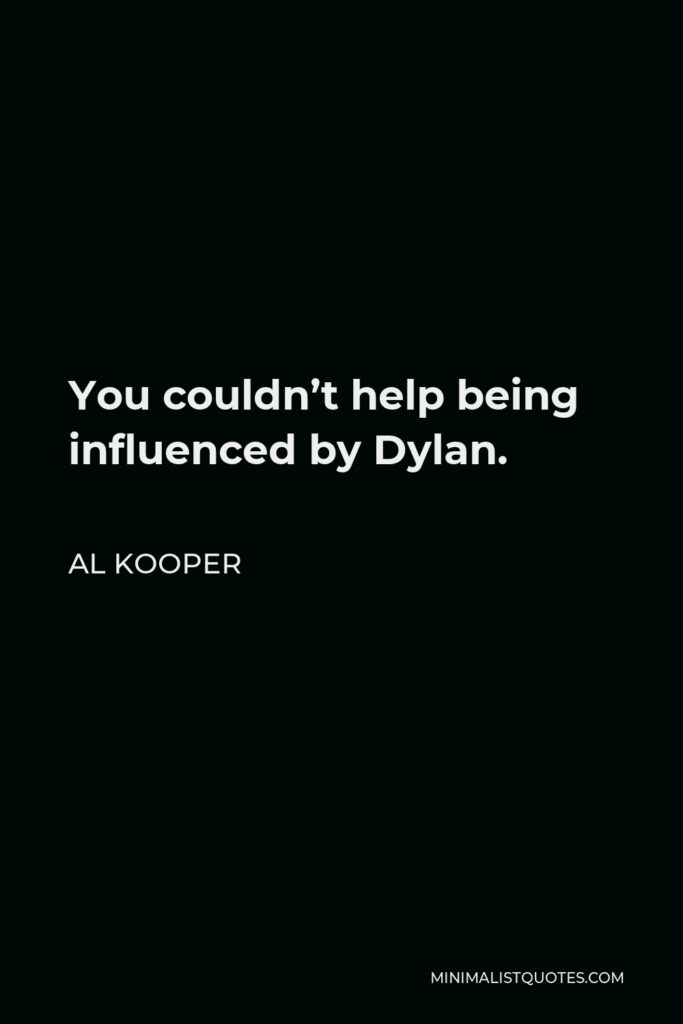

-





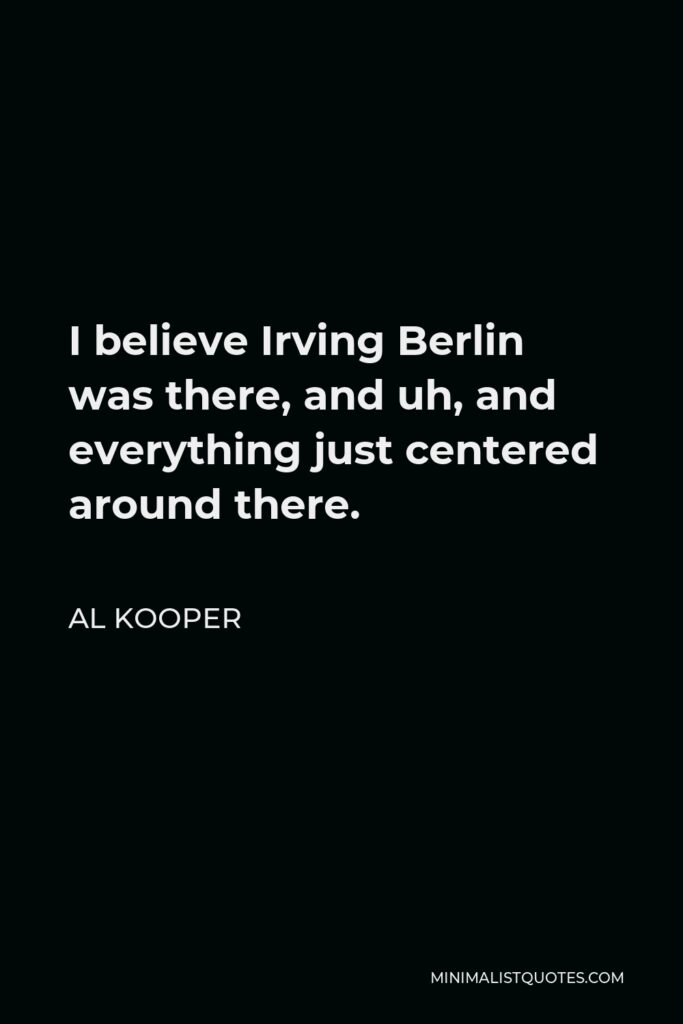

I believe Irving Berlin was there, and uh, and everything just centered around there.
AL KOOPER -





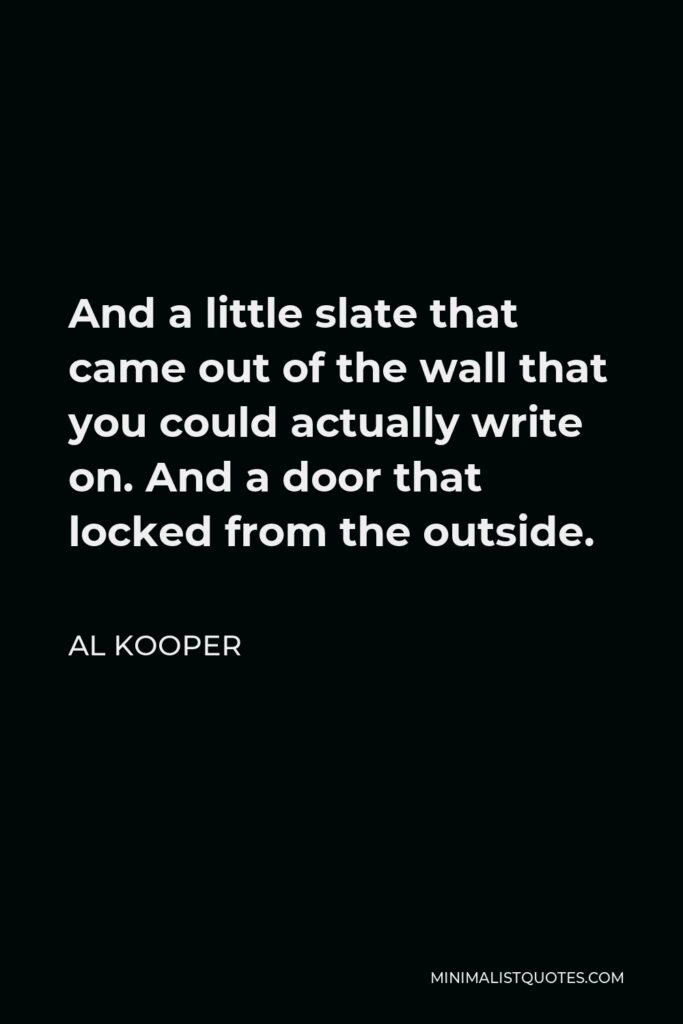

And a little slate that came out of the wall that you could actually write on. And a door that locked from the outside.
AL KOOPER -





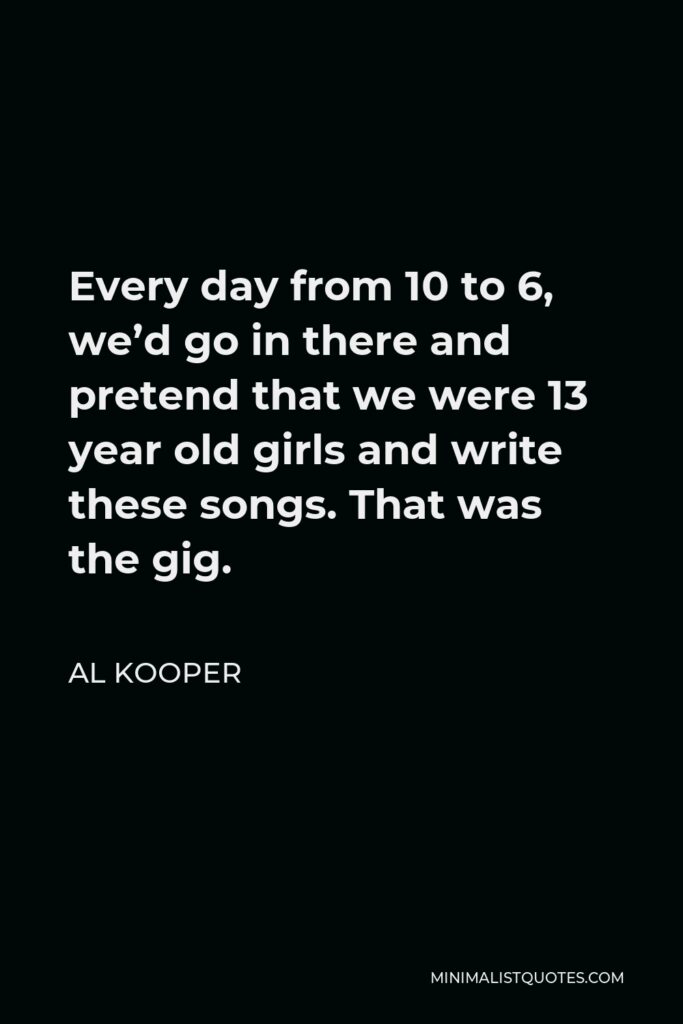

Every day from 10 to 6, we’d go in there and pretend that we were 13 year old girls and write these songs. That was the gig.
AL KOOPER -





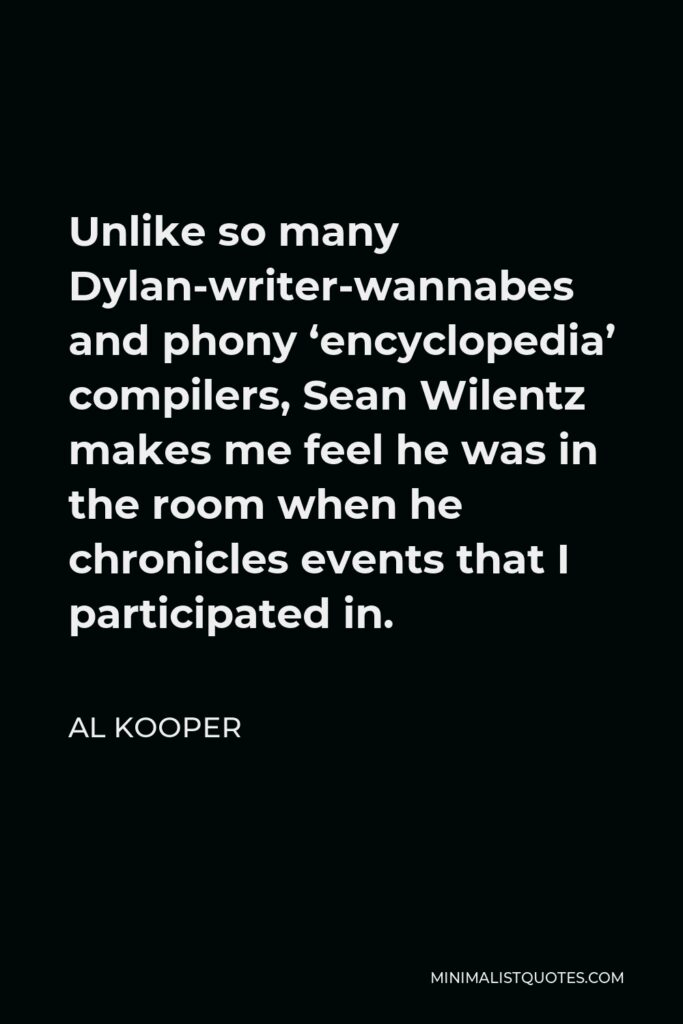

Unlike so many Dylan-writer-wannabes and phony ‘encyclopedia’ compilers, Sean Wilentz makes me feel he was in the room when he chronicles events that I participated in.
AL KOOPER -





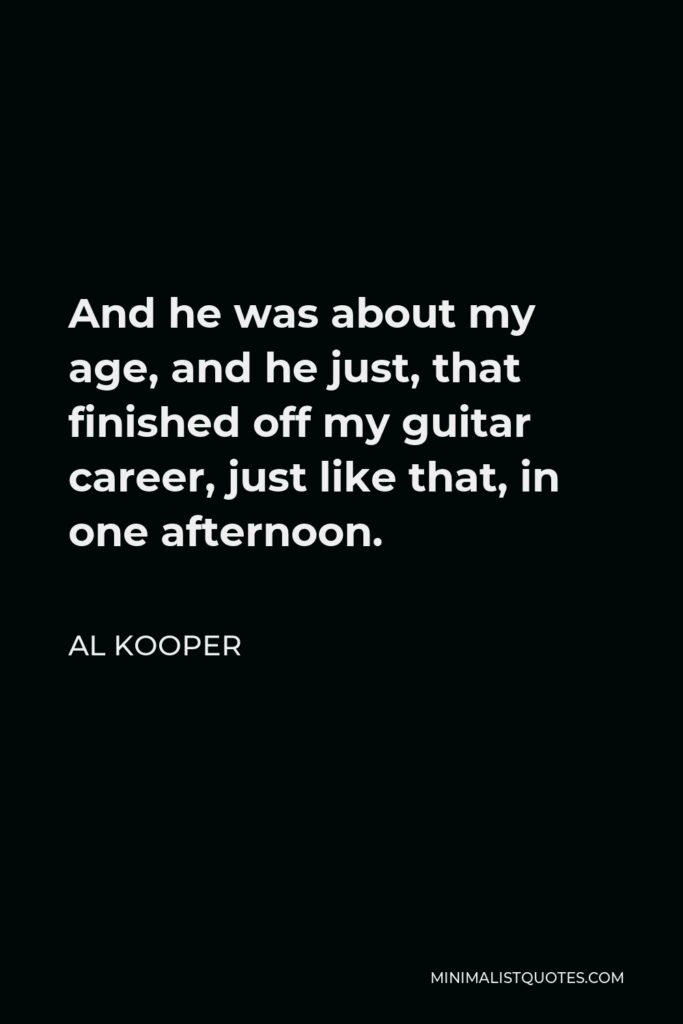

And he was about my age, and he just, that finished off my guitar career, just like that, in one afternoon.
AL KOOPER -





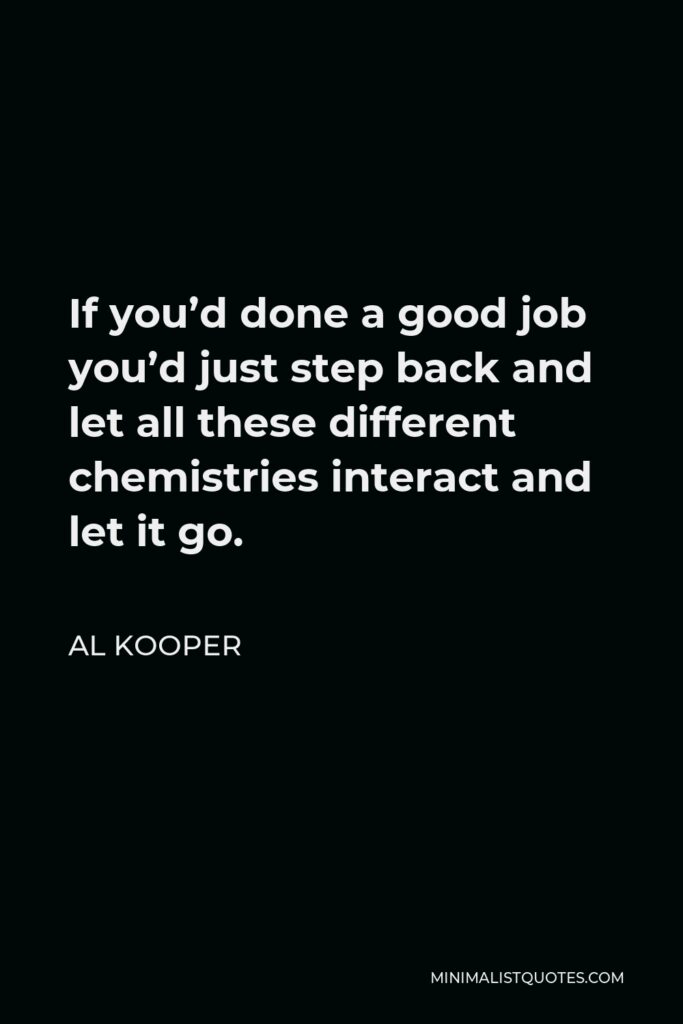

If you’d done a good job you’d just step back and let all these different chemistries interact and let it go.
AL KOOPER -





![Al Kooper Quote - Musically Bob [Dylan] is a primitive. He’s not a Gershwin, or somebody that uses eloquent music terms.](https://minimalistquotes.com/wp-content/uploads/2022/07/musically-bob-dylan-is-a-primitive-hes-not-a-gersh-683x1024.jpg)

Musically Bob [Dylan] is a primitive. He’s not a Gershwin, or somebody that uses eloquent music terms.
AL KOOPER -







Bob Dylan said to the producer, turn up the organ. And Tom Wilson said, oh man, that guy’s not an organ player. And Dylan said.
AL KOOPER -





![Al Kooper Quote - I think it was Columbia politics, Columbia Records politics that, that, Tom Wilson left [Bob Dylan] after “Like A Rolling Stone”.](https://minimalistquotes.com/wp-content/uploads/2022/07/i-think-it-was-columbia-politics-columbia-records--683x1024.jpg)

I think it was Columbia politics, Columbia Records politics that, that, Tom Wilson left [Bob Dylan] after “Like A Rolling Stone”.
AL KOOPER -





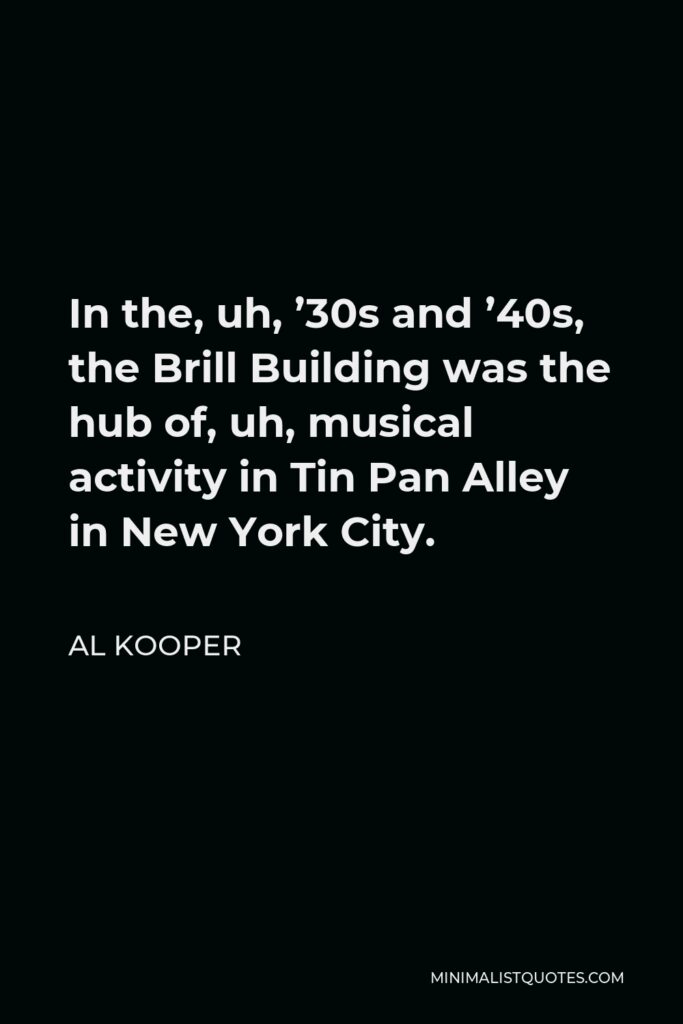

In the, uh, ’30s and ’40s, the Brill Building was the hub of, uh, musical activity in Tin Pan Alley in New York City.
AL KOOPER -





![Al Kooper Quote - The [Bob] Dylan sessions were very disorganized, to say the least. I mean, the “Like A Rolling Stone” session I was invited by the producer to watch.](https://minimalistquotes.com/wp-content/uploads/2022/07/the-bob-dylan-sessions-were-very-disorganized-to-s-683x1024.jpg)

The [Bob] Dylan sessions were very disorganized, to say the least. I mean, the “Like A Rolling Stone” session I was invited by the producer to watch.
AL KOOPER -





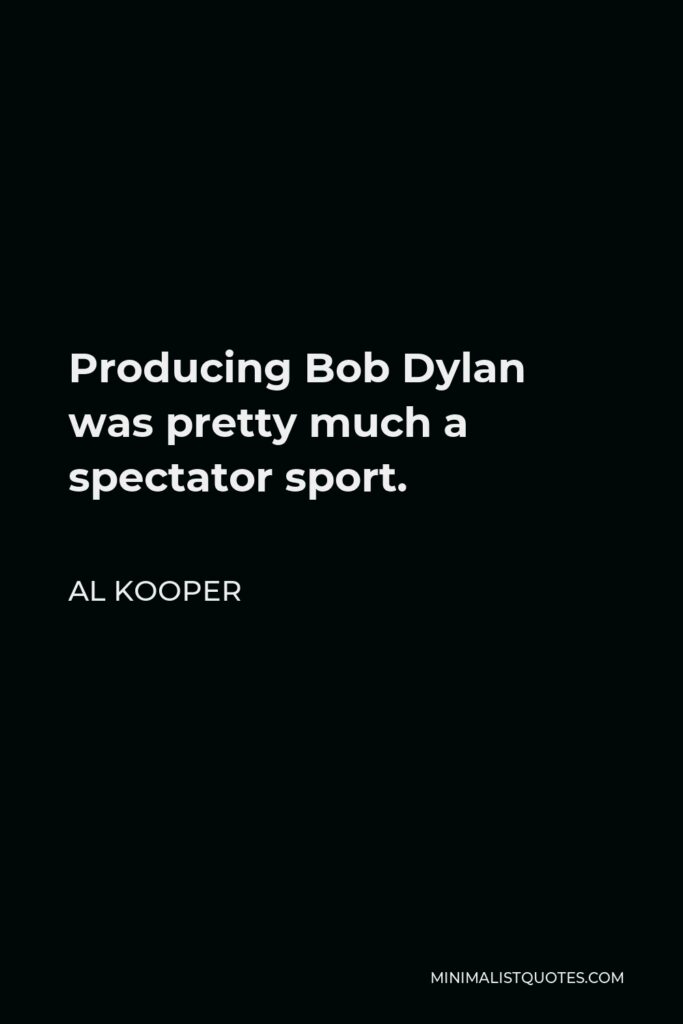

Producing Bob Dylan was pretty much a spectator sport.
AL KOOPER -





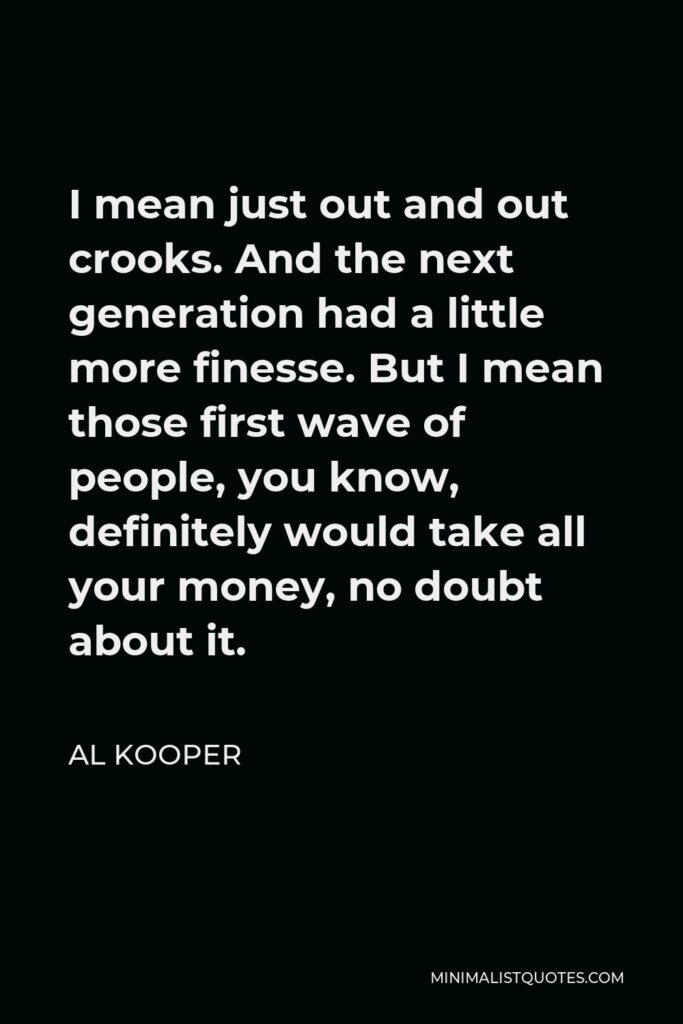

I mean just out and out crooks. And the next generation had a little more finesse. But I mean those first wave of people, you know, definitely would take all your money, no doubt about it.
AL KOOPER -





![Al Kooper Quote - The first generation from the ’50s that were in 1650 [Broadway] were pretty much all crooks,](https://minimalistquotes.com/wp-content/uploads/2022/07/the-first-generation-from-the-50s-that-were-in-165-683x1024.jpg)

The first generation from the ’50s that were in 1650 [Broadway] were pretty much all crooks,
AL KOOPER -





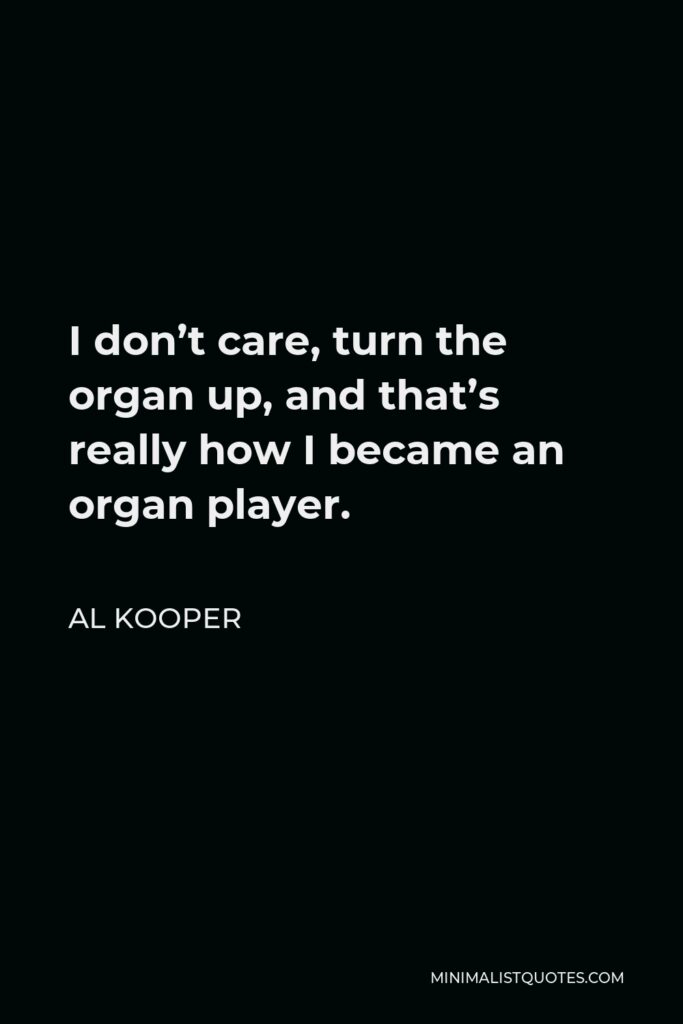

I don’t care, turn the organ up, and that’s really how I became an organ player.
AL KOOPER
